Related Research Articles
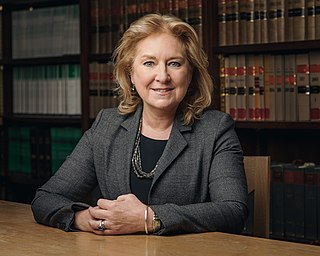
The Lady Chief Justice of England and Wales is the head of the judiciary of England and Wales and the president of the courts of England and Wales.
A recorder is a judicial officer in England and Wales and some other common law jurisdictions.
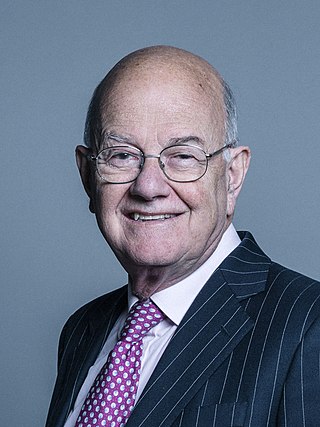
Igor Judge, Baron Judge,, was an English judge who served as Lord Chief Justice of England and Wales, the head of the judiciary, from 2008 to 2013. He was previously President of the Queen's Bench Division, at the time a newly created post assuming responsibilities transferred from the office of lord chief justice. From 2019 to 2023, he served as Convenor of the Crossbench Peers in the House of Lords.
The Judicial Appointments Commission (JAC) is an independent commission that selects candidates for judicial office in courts and tribunals in England and Wales and for some tribunals whose jurisdiction extends to Scotland or Northern Ireland.

There are various levels of judiciary in England and Wales—different types of courts have different styles of judges. They also form a strict hierarchy of importance, in line with the order of the courts in which they sit, so that judges of the Court of Appeal of England and Wales are given more weight than district judges sitting in county courts and magistrates' courts. On 1 April 2020 there were 3,174 judges in post in England and Wales. Some judges with United Kingdom-wide jurisdiction also sit in England and Wales, particularly Justices of the United Kingdom Supreme Court and members of the tribunals judiciary.
Sir John Bernard Goldring is a British judge. He currently sits as the President of the Cayman Islands Court of Appeal, and serves as the Deputy Investigatory Powers Commissioner. He formerly sat on the Court of Appeal of England and Wales.
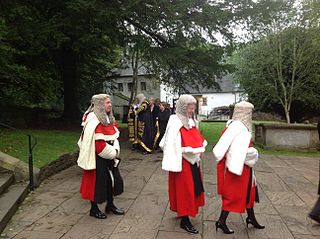
A justice of the High Court, commonly known as a High Court judge, is a judge of the High Court of Justice of England and Wales, and represents the third-highest level of judge in the courts of England and Wales. High Court judges are referred to as puisne justices and wear red and black robes.
The Judiciary of England and Wales contains many levels, based on the court in which the judge sits. Titles are given to judges relating to their position and, in the case of knighthoods and peerages, this includes the positions they had previously held. Retired judges that sit in any court use their full name with their titles added. Members or former members of the higher judiciary who are King's Counsel do not use the post-nominal letters KC.

Dame Victoria Madeleine Sharp,, PC is a British barrister and judge. She has been the President of the King's Bench Division of the High Court of Justice since 2019.

The Judges' Council is a body in England and Wales that, representing the judiciary, advises the Lord Chief Justice on judicial matters. It has its historical roots in the original Council of the Judges of the Supreme Court, created by the Judicature Act 1873 to oversee the new Supreme Court of Judicature. This body initially met regularly, reforming the procedure used by the circuit courts, and the new High Court of Justice but met less regularly as time went on, meeting only twice between 1900 and 1907, with a gap of ten years between meetings in 1940 and 1950 respectively. After relative inactivity, it was eventually wound up through the Supreme Court Act 1981, which contained no provisions for its continued existence, something Denis Dobson attributes to newer bodies which performed the duties the Council had originally been created to do.
Sir Peter Ribblesdale Thornton KC is a former Senior Circuit Judge and former Chief Coroner of England and Wales.
The Senior Presiding Judge for England and Wales is a member of the Court of Appeal appointed by the Lord Chief Justice to supervise the Presiding Judges for the various judicial circuits of England and Wales. The Senior Presiding Judge is responsible for deployment and personnel issues for all circuits and acts as a "general point of liaison" for the courts, judiciary and Government.
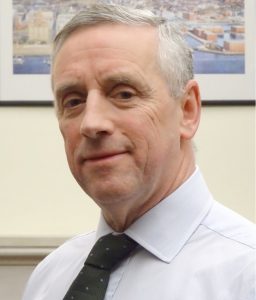
Sir Timothy Victor Holroyde, PC, styled The Rt. Hon. Lord Justice Holroyde, is an English Court of Appeal judge, formerly a judge of the High Court of Justice of England and Wales, Queen's Bench Division. He was appointed to the Court of Appeal in October 2017. He was sworn of the Privy Council in 2017. In 2015 he was appointed a member of the Sentencing Council for England and Wales, and served as its Chairman between 2018 and 2022. In June 2022 he was appointed Vice-President of the Court of Appeal, succeeding Lord Justice Fulford.
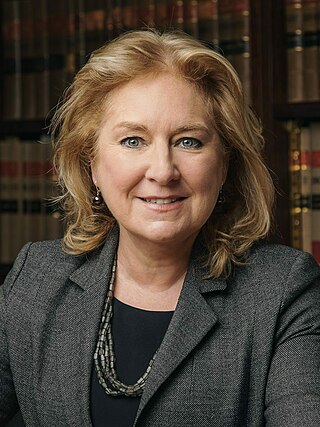
Sue Lascelles Carr, Baroness Carr of Walton-on-the-Hill, is an English judge who has served as Lady Chief Justice of England and Wales since 1 October 2023. She is the first woman to serve as the head of the judiciary of England and Wales since the inception of the office of Lord Chief Justice in the 13th century. Carr previously served as a High Court judge from 2013 to 2020 and a Lady Justice of Appeal from 2020 to 2023.

Ian Duncan Burnett, Baron Burnett of Maldon,, is a British judge who served as Lord Chief Justice of England and Wales from 2017 to 2023.
Sir Stephen John Irwin, is a retired British judge and barrister. From September 2016 until October 2020, he was a Lord Justice of Appeal. From May 2006 to 2016, he served as a judge of the High Court of England and Wales.

Dame Kathryn Mary Thirlwall, DBE, styled The Rt Hon Lady Justice Thirlwall, is an English judge of the Court of Appeal, and since December 2019 is the Senior Presiding Judge for England and Wales. She practised as a barrister from 1982, was a High Court judge from April 2010, and was promoted to the Court of Appeal of England and Wales in February 2017.
Mark Lucraft, KC is a British jurist and was Chief Coroner of England and Wales—the second person to occupy the role—from 2016 to 2020. In 2020—before relinquishing the role of Chief Coroner—he became Recorder of London, the senior judge at the Old Bailey. The roles were allowed to overlap due to the COVID-19 pandemic. By tradition, the Recorder of London is also appointed High Steward of Southwark, and Lucraft accordingly occupies this role.

The King's Bench Division of the High Court of Justice deals with a wide range of common law cases and has supervisory responsibility over certain lower courts.
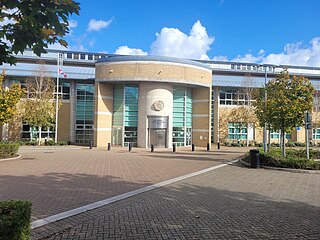
The Bournemouth Combined Court Centre, also known as Bournemouth Courts of Justice, is a Crown Court venue, which deals with criminal cases, as well as a County Court venue, which deals with civil cases, in Deansleigh Road, Bournemouth, Dorset, England.
References
- 1 2 3 "Office of the Chief Coroner". UK Courts and Tribunals Judiciary. Retrieved 12 April 2021.
- ↑ "Chief Coroner HHJ Thomas Teague KC looks back on his career". Courts & Tribunals Judiciary. Retrieved 29 May 2024.
- ↑ "Appointment of new Chief Coroner". Judiciary UK. Courts & Tribunals Judiciary. Retrieved 29 May 2024.
- ↑ "Coroner's appointment is a national first". Sunderland City Council. Retrieved 29 August 2023.